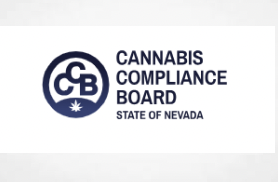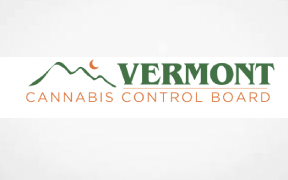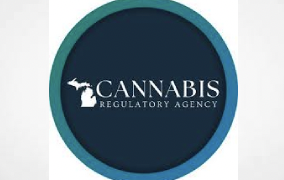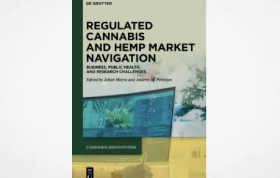Authors
Cassandra Beckman Widay and Amy Rubenstein
January 30, 2023
The plaintiffs bar has set its sights on cannabis companies, recently hitting them with consumer class actions alleging that labels and advertisements misstated products’ THC contents.
Taking a page from the classic playbook for consumer product litigation, these cases invoke unfair and deceptive acts and practices statutes, which exist in various forms in all 50 states and have long vexed traditional companies selling personal care or food and beverage products.
As cannabis companies grow, so too may the targets on their backs for these types of claims.
Recent THC Mislabeling Lawsuits
From October 2022 to January 2023, one law firm filed six putative class actions under California’s Unfair Competition Law and Consumer Legal Remedies Act on behalf of putative classes of millions of California purchasers of various cannabis products.[1]
The near-verbatim complaints allege that overstated THC levels inappropriately cause consumers to pay higher prices and, moreover, that a much broader THC inflation problem exists across the cannabis industry.
Three of the six complaints base their claims on a Sept. 8, 2022, WeedWeek article[2] about potency tests. The other three complaints do not cite the WeedWeek article, and mention independent laboratory testing, without attaching any such records.
The WeedWeek article cautioned against drawing conclusions from its “imperfect experiment” because “[t]he tests don’t account for many variables” and there could be “possible corruptions.”
Indeed, many different factors can affect testing results — such as the methodology, product age, chain of custody, laboratory, equipment, extraction solvent, storage temperature, moisture content and ambient humidity.
Because the cannabis industry currently lacks a standard testing protocol, it remains to be seen how potency tests could accurately and reliably form the basis of a lawsuit.
The disclaimers in the WeedWeek article did not deter the trio of associated complaints, and the claims remain in the public domain.
Perhaps this particular wave of THC mislabeling class actions will continue as it has for months, or will spark other lawsuits with similar claims. Cannabis industry participants will certainly be keeping a close eye on how these cases unfold.
Sampling of Earlier THC Mislabeling Lawsuits
The cases above were not the first putative class actions with claims about overstated THC levels.
Earlier in 2022, in Plumlee v. Steep Hill Inc.,[3] plaintiffs sought to represent a class of Arkansas medical marijuana users and alleged, among other things, that a cannabis technology company violated the Arkansas Deceptive Trade Practices Act by selling products that contained less THC than advertised.
Following motions to dismiss, however, in October 2022, all the plaintiffs voluntarily moved to dismiss the Plumlee case without prejudice.
Looking further back to 2020, in Blackford v. Cura CS LLC multiple plaintiffs — at least initially — sought to represent a national class of purchasers of vape cartridges.
According to counsel’s commissioned independent lab testing, such products contained a fraction of their stated THC levels.[4] Iterations of this case oscillated back and forth between the Multnomah County Circuit Court and the U.S. District Court for the District of Oregon.[5]
Eventually the operative Blackford complaint involved one plaintiff who sought to represent solely a class of Oregon purchasers, including in a claim under the Oregon Unlawful Trade Practices Act. In 2021, the Blackford case ended by a stipulated dismissal with prejudice.
Simmering Issues
The lawsuits summarized above are unlikely to be the last of their kind. Comparable mislabeling accusations were made about CBD products following widely reported U.S. Food and Drug Administration testing,[6] culminating in numerous consumer class actions across the U.S.
And supposed exposés that question the accuracy of cannabis products’ stated potencies may very well continue, bringing about more THC mislabeling class actions. Plus, motivated law firms can always pursue their own product testing in laboratories.
As the cannabis industry continues to expand its geographic reach internationally, the associated risk of consumer class actions may expand as well. At least one massive THC mislabeling class action was already filed abroad — Langevin v. Aurora Cannabis Inc. in the Court of Queen’s Bench of Alberta.[7] And the plaintiffs bar might be even more keen to test its prospects in emerging domestic markets.
Beyond the direct risks of THC mislabeling class actions, there are also collateral risks to consider; depending on the circumstances, these could involve regulators, recalls and even personal injury lawsuits.
Although it did not face typical THC inflation accusations, in October 2022, multistate cannabis operator Curaleaf Holdings Inc. preliminarily settled a mislabeling class action resulting from a manufacturing mix-up in which buckets of CBD and THC ingredients were swapped.
The proposed settlement in Williamson v. CuraLeaf is subject to approval by the District of Oregon, and will not prevent consumers from pursuing individualized personal injury claims based on unintentional THC consumption.[8]
Takeaways
- The threat of consumer class actions should be a wake-up call for cannabis companies. Apart from the direct and collateral legal risks that such lawsuits pose, the cannabis industry’s overall reputation is being scrutinized. Regardless of whether THC mislabeling claims ultimately prevail in court, the negative press coverage alone can damage cannabis brands and fuel national and state-level anti-cannabis campaigns.
- Because consumer class actions can lead to such multifaceted exposures, maturing cannabis companies should be proactively assessing and mitigating their legal risks.
- Those efforts can include developing a compliance program around THC testing procedures, monitoring legislative and regulatory activity, updating product labels and advertisements, and using mandatory arbitration clauses and class action waivers in consumer agreements if possible.
- If a bona fide mislabeling issue arises, cannabis companies should be prepared with a recall plan to promptly address the issue. This can involve identifying team members to lead the recall, understanding agency guidance and regulations affecting the process, being aware of any appropriate insurance or legal contacts, and having a communications strategy.[9]
- At least one state, New Jersey, recommends conducting a mock recall to prepare for the real thing.[10] Although a recall happens after the fact, when done well, it shows that a company takes these issues seriously.
- Even when a consumer product company takes all appropriate and reasonable steps to mitigate risks, it is nearly impossible to eliminate completely the risk of mislabeling class actions.
- Particularly for cannabis companies, mislabeling class actions can affect not only an individual business, but also the industry’s credibility as a whole.
Cassandra Beckman Widay is a senior managing associate and Amy Rubenstein is a partner at Dentons.
The opinions expressed are those of the author(s) and do not necessarily reflect the views of their employer, its clients, or Portfolio Media Inc., or any of its or their respective affiliates. This article is for general information purposes and is not intended to be and should not be taken as legal advice.
SOURCES
[1] See Centeno v. DreamFields Brands Inc., No.22STCV33980 (Cal. Super. Ct., L.A. Cnty.); Willeford v. Greenfield Organix Inc., No.22CV003301 (Cal. Super. Ct., Monterey Cnty.); Gallard v. Ironworks Collective Inc., No. 22STCV38021 (Cal. Super. Ct., L.A. Cnty.); Argueta v. V O Leasing Corp., No. 22STCV38126 (Cal. Super. Ct., L.A. Cnty.); Lun v. Lowell Farms Inc., No. 22STCV38886 (Cal. Super. Ct., L.A. Cnty.); and Lun v. Four Star Mfg. LLC, No. 23STCV00213 (Cal. Super. Ct., L.A. Cnty.).
[2] Alex Halperin, Exclusive: We Tested Top Calif. Prerolls for Potency Inflation, WeedWeek (Sept.8, 2022), https://www.weedweek.com/stories/exclusive-we-tested-top-calif-prerolls for-potency-inflation/.
[3] Plumlee v. Steep Hill, Inc., No.22-CV-00638 (E.D. Ark.).
[4] Blackford v. Cura CS LLC, No. 20CV18270 (Or. Cir. Ct., Multnomah Cnty.).
[5] See No.20-CV-00982 (D. Or.); No.20CV25203 (Or. Cir. Ct., Multnomah Cnty.); No.21- CV-01240 (D. Or.).
[6] U.S. Food & Drug Administration, Sampling Study of the Current Cannabidiol Marketplace to Determine the Extent that Products Are Mislabeled or Adulterated (July 8, 2020), available at https://files.constantcontact.com/0ac3ac29601/07fb4b7e-2a70-4190- ba6b-9bb8f9f2264c.pdf.
[7] See, e.g., Langevin v. Aurora Cannabis Inc., Court of Queen’s Bench of Alberta, Court File No. 2001-07541.
[8] See Williamson v. CuraLeaf, Inc., No. 22-CV-00782 (D. Or.).
[9] Joanna Borman & Amy Rubenstein, Best Practices for Cannabis Cos. Managing a Product Recall, Law 360 (Dec. 15, 2022), https://www.law360.com/articles/1558462/best-practices for-cannabis-cos-managing-a-product-recall.
[10] N.J. Amin. Code §17:30-9:17(d) (2023).
Originally Published At Law360



















